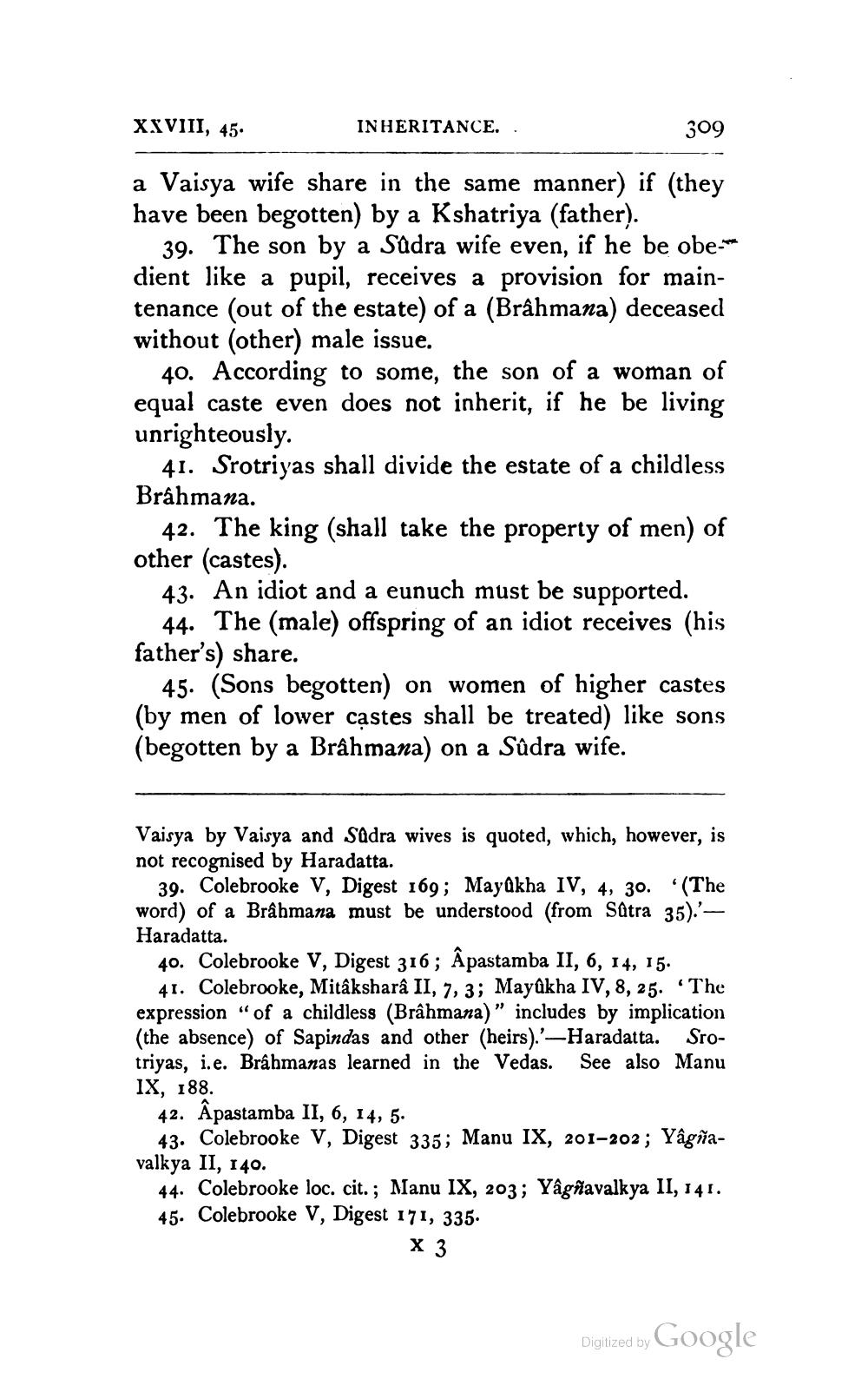________________
XSVIII, 45.
INHERITANCE..
, 45.
309
a Vaisya wife share in the same manner) if (they have been begotten) by a Kshatriya (father).
39. The son by a Sudra wife even, if he be obe-> dient like a pupil, receives a provision for maintenance (out of the estate) of a (Brâhmana) deceased without (other) male issue.
40. According to some, the son of a woman of equal caste even does not inherit, if he be living unrighteously.
41. Srotriyas shall divide the estate of a childless Brahmana.
42. The king (shall take the property of men) of other (castes).
43. An idiot and a eunuch must be supported.
44. The (male) offspring of an idiot receives (his father's) share.
45. (Sons begotten) on women of higher castes (by men of lower castes shall be treated) like sons (begotten by a Brâhmana) on a Sûdra wife.
Vaisya by Vaisya and Sadra wives is quoted, which, however, is not recognised by Haradatta.
39. Colebrooke V, Digest 169; Mayûkha IV, 4, 30. (The word) of a Brâhmana must be understood (from Sätra 35).' — Haradatta.
40. Colebrooke V, Digest 316; Âpastamba II, 6, 14, 15.
41. Colebrooke, Mitâksharâ II, 7, 3; Mayûkha IV, 8, 25. The expression “of a childless (Brâhmana)” includes by implication (the absence) of Sapindas and other (heirs).'-Haradatta. Srotriyas, i.e. Brâhmanas learned in the Vedas. See also Manu IX, 188.
42. Apastamba II, 6, 14, 5.
43. Colebrooke V, Digest 335; Manu IX, 201-202 ; Yâgñavalkya II, 140.
44. Colebrooke loc. cit.; Manu IX, 203; Yâgħavalkya II, 141. 45. Colebrooke V, Digest 171, 335.
X 3
Digitized by Google




